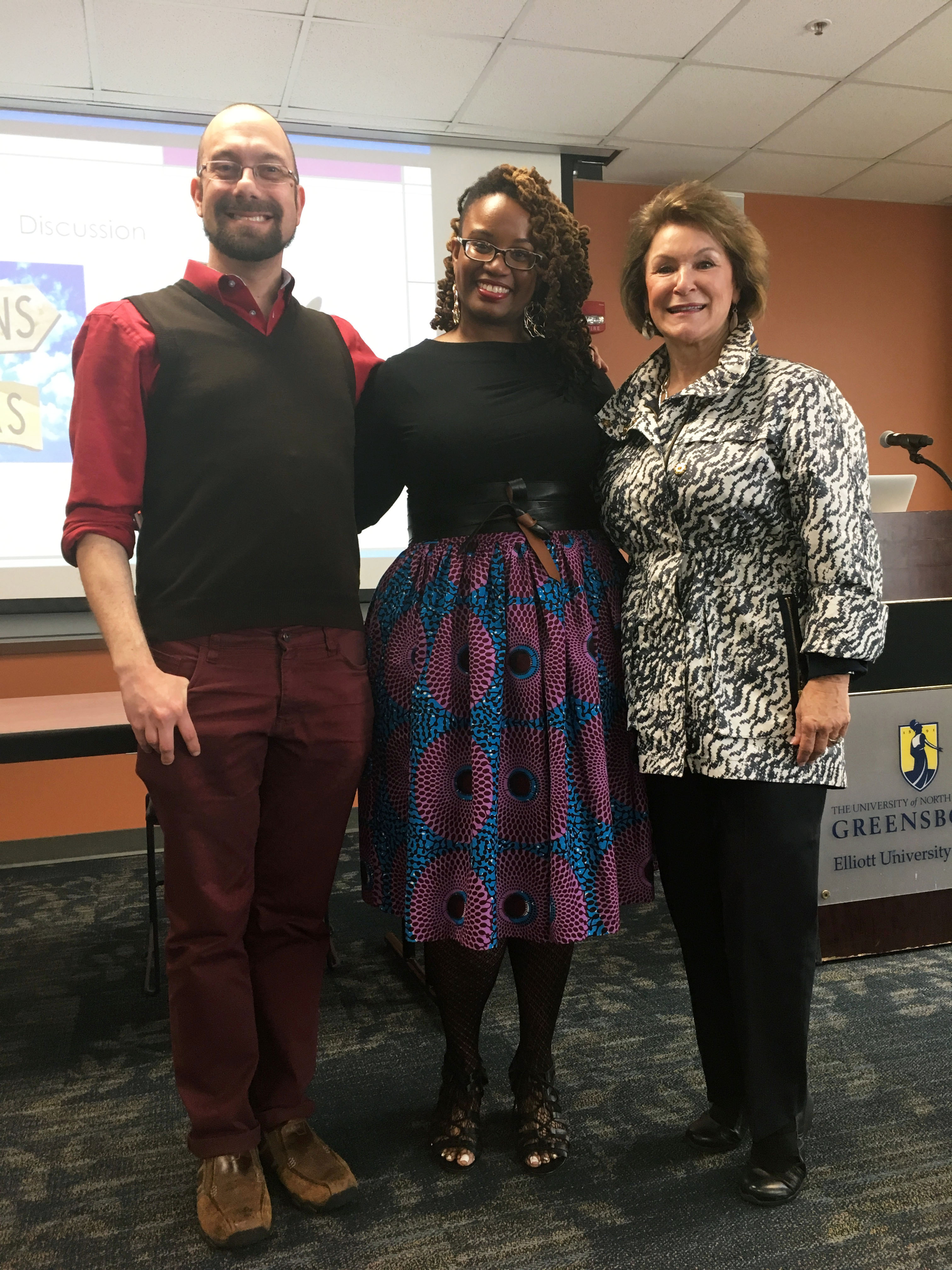
Posted on 04/08/2019
The Women’s and Gender Studies program would like to thank this year’s Linda Arnold Carlisle Faculty Research Award recipient, Dr. Yarneccia Dyson, for presenting her work on “Herstory: The Use of Womanism as an Epistemological Lens to Explore Sexual Health Risks and Lived Experiences of Women of Color in College” on Thursday, March 21, 2019.
Dr. Dyson opened her presentation by highlighting some key terms of the Herstory Project including: Womanism, Epistemological Sexual Health Risks, Lived Experiences, Women of Color, HIV and AIDS. Her project’s respondents included women of color who primarily identified as African American or Black, including one Asian American and one Latinx woman. Dr. Dyson notes that NC ranks number 8 in the nation with the highest number of HIV infection, while Guilford County ranks near the top of all counties regarding the number of infected persons.
Dr. Dyson posits that we must consider the added layer of cultural factors that increase women of color’s rates of exposure and infection when looking at sexual health and issues around intimacy. Issues related to structural racism, oppression, and implicit bias are social determinants of health that cannot be overlooked. Dyson focuses on STI’s (Sexually Transmitted Infections) because they include HIV infections, while understanding that in order to reduce the spread of HIV infections we must reduce risks for STI’s.
This project focuses how the lived experiences of women of color serve as predictors of risk. Dr. Dyson claims this population is not only understudied, but that their voices and knowledges are not included in approaches to infection and treatment. She recognizes how one’s lived experiences effects a person’s decision-making process. Her ultimate goal is to end HIV in the community at large.
In developing case specific interventions, Dyson claims we must foster relationships within the community, recognizing how oppressions and culturally specific understandings intersect and work in tandem in order to honor the populations we seek to serve. Dyson asks three questions while conducting her preliminary research: 1) Do women of color consider themselves at risk for HIV? 2) What are the lived experiences of women of color that serve as predictors for risk of HIV? 3) How do STI knowledge, substance use, testing behaviors, and sexual decision-making skills influence risks for women of color in college?
Dr. Dyson’s research is ongoing and important in addressing predictors of risk for women of color in college. By highlighting key factors that increase risks, Dyson hopes to create ways of managing those risks in order to cut down on STI’s, and, ultimately, decrease rates of HIV. She has recently added four new sites of research to include men in her sample, specifically males at HBCU’s. Thank you again to Dr. Yarneccia Dyson for sharing her ongoing research and to Linda Arnold Carlisle for the endowment that generously funds this faculty research award each year.